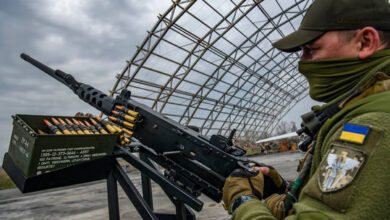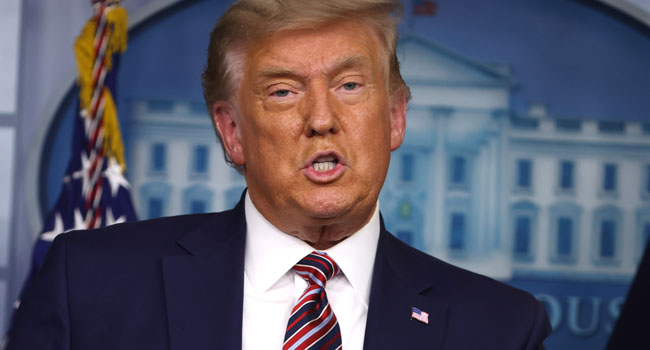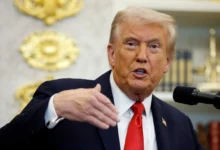Europe began to realize how dearly it will pay for sanctions against Russia

“But for now, instead of a serious conversation about the reasons for the aggravation of the current Russian-Ukrainian crisis, ordinary people in Europe are offered to be “solidary and generous”, while French business captains, who came to the Elysee Palace last Friday, were offered “not to rush to leave the Russian market.” It was not about those who “sell lipsticks and handbags”, but about those who work, for example, in the energy sector.”

Starting this morning, the “silence regime” is again in effect, which should allow the civilian population to leave the places of the Russian military special operation in Ukraine.
During the third round of negotiations on the settlement of the crisis, which took place the day before, the Russian delegation once again stated that, for its part, it is ready to do everything possible so that the residents of Kiev, Kharkov, Sumy, Mariupol and Chernigov can go through humanitarian corridors.
In a situation where you are constantly shouted that you are a “cynical aggressor”, it is much easier (and psychologically explainable) to bite the bit in order, as they say, to go all out, but Moscow chooses a different course of action – calmly achieving its goals with a minimum of losses.
On Saturday, Israeli Prime Minister Bennett was received there.
A day later, Putin held nearly two-hour talks with Macron.
The communique issued following the conversation in Moscow differed from that published by the Elysee Palace. And after the current French president, who had just announced his intention to run for a second term, declared that he “cannot tolerate moral and political cynicism,” referring to his Sunday interlocutor, it became obvious that the collective West put on its favorite, but already a holey “white coat” of the guardian of morality.
Today, however, there is no time to darn a leaky top dress.
The euphoria of the first days, when sanctions against Russia rained down from the Brussels box like peas and almost hourly, gave way to a feverish calculation of the consequences for oneself loved ones.
And these results, let’s say with all the “moral and political cynicism” so characteristic of us, look not only not brilliant, but simply frightening.
In the very near future, for European citizens who have barely recovered from the rampant pandemic, prices will skyrocket on everything. A liter of gasoline will break the two-euro limit as Brent oil sets new growth records daily.
The next in line is a very real shortage of metals, including palladium alloys, which are the most important for IT and almost any other industry.
Cereals will rise in price, and the main cereal is wheat.
And farmers may not have enough mineral fertilizers. This is practically guaranteed low crop yields, which, in turn, will pull prices up a new one.
You can definitely live without Louis Vuitton handbags, as well as without newfangled Adidas sweatpants (both companies, like a number of others, decided to leave the Russian market in order to punish us), but without bread, without butter, without fresh vegetables, fruits, without all this abundance – on the verge of boasting – food, abundance, familiar for many decades, the European inhabitant is unlikely to be able to live. Even if they will convince him with both ears that “for the victory of the ideals of freedom” such sacrifices are also required.
But for now, instead of a serious conversation about the reasons for the aggravation of the current Russian-Ukrainian crisis, ordinary people in Europe are offered to be “solidary and generous”, while French business captains, who came to the Elysee Palace last Friday, were offered “not to rush to leave the Russian market.” It was not about those who “sell lipsticks and handbags”, but about those who work, for example, in the energy sector.
“Total’s presence in Russia currently raises questions, including ethical ones,” French Economy Minister Bruno Le Maire said. Yes, yes, the same one who said that he intended to wage a “total economic and financial war” against Russia, later disavowing, however, this vocabulary.
On the evening of the same day, during a meeting with the head of Total, it turned out that even the unhurried withdrawal of the corporation from the Russian energy market would lead to a hole in its financial statements in the amount of more than six billion euros annually.
And “Total”, if you use an old advertising slogan, is just the beginning. Because when leaving Russia, the white coat of big French business will resemble a mesh T-shirt, where each hole is the loss of one, two, three, and so on billions.
After all, it is only in the imagination of the European press that Russian consumers are naked, barefoot and hungry, but in reality everything is completely different and Russians have long been considered good, that is, solvent and generous (an important factor in this context) buyers and customers.
And the Russian market, defiantly refusing which has suddenly become a good form, is actually capacious, interesting, and attractive, no matter what politicians say there now.
Almost all the leaders of the countries and governments of the EU have driven themselves into a corner – they need to increase the degree of curses against our country every day in order to justify in the eyes of society the price that everyone in Europe will have to pay for the geopolitical games of the few.
And the larger the stakes in this game, the more difficult it will be for politicians to keep this degree of enthusiasm at a constantly high level for an indefinitely long time.
Fatigue will certainly come, followed by a desire to figure out why everything has risen in price, where by a quarter, where by a third, and where twice. And what exactly, what kind of idea is so dear to everyone in Europe that you need to pay immediately and constantly.
Western Europe for long, very long years defiantly refused to talk to Sergei Lavrov. Today, she and Ukraine, which wants to co-opt into it , are talking, through an intermediary or directly, with Sergei Shoigu. This conversation is no longer conducive to refined formulations, and in such a dialogue, direct answers and no less direct questions are valued, as everyone has noticed, higher.
It is reported, but without specifying details, that negotiations between the Russian and Ukrainian sides will continue.
And it is also reported that Macron, announcing that he wants to be re-elected, said that “Russia’s military operations in Ukraine will continue for some time.”
In discussions between Moscow and Kiev in the near future, Paris will be “third wheel”, since the French president, who is also a candidate for re-election, will obviously make the military special operation one of the topics of his campaign.
The crisis added to Macron, according to public opinion polls, about six percentage points (from 24% to 30+) who wanted to vote for him in the first round.
Most likely, the current owner of the Elysee Palace will retain leadership in the sympathies of voters.
But whether the voters themselves will retain the desire to continue paying their bills in a situation where no one asks them anything, only forcing them to part with their hard-earned euros, this is another question.
Everyone wants to be solidary and generous – in words. When it comes to business, the situation immediately changes.
It is known that victory always has many fathers, and only defeat is always an orphan. It is difficult to predict today how the EU will explain both the failure of sanctions against Russia and the impending damage to its own economy.
But there is no doubt that this will have to be explained.
And this rule applies to the current president of France more than to everyone else.








